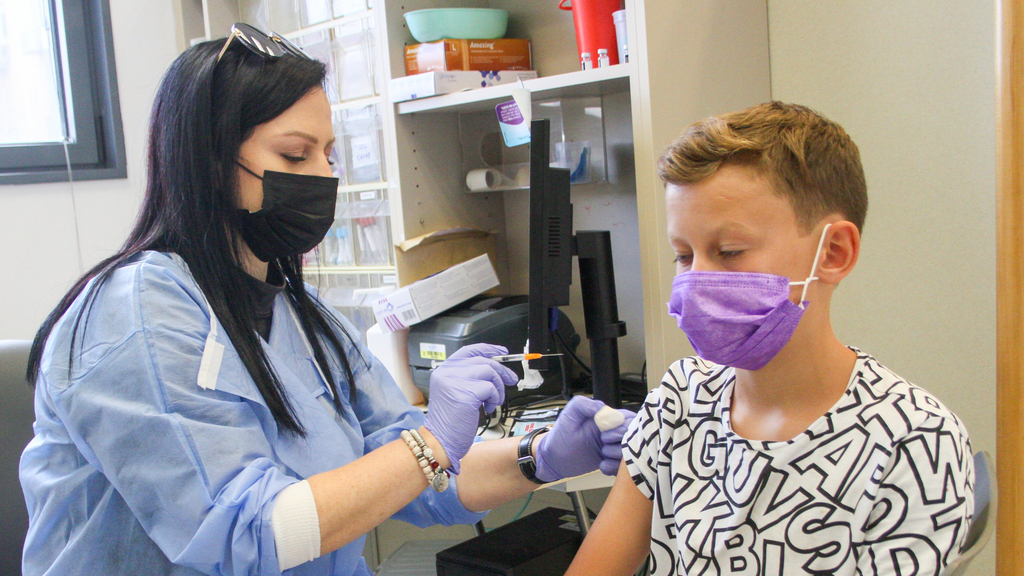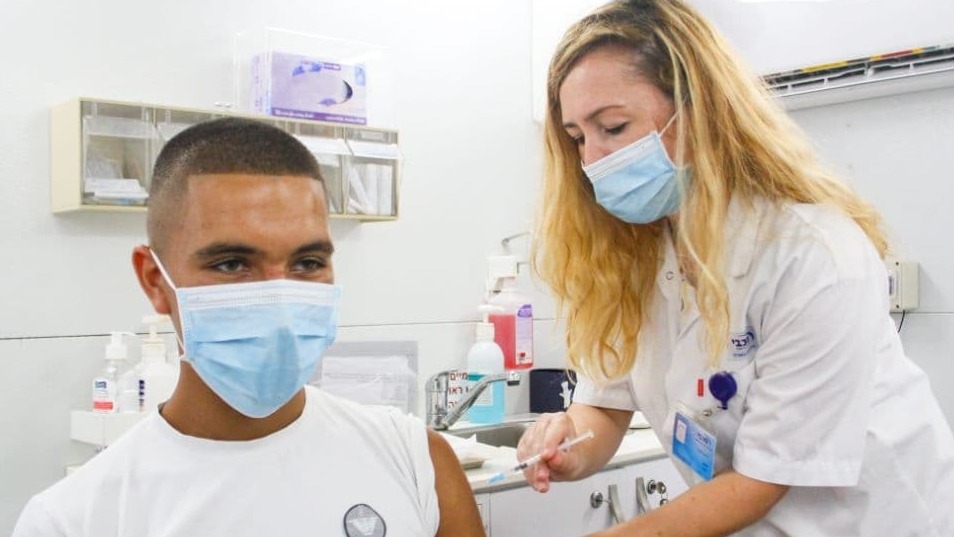Getting your Trinity Audio player ready...
Israel on Monday resumed its campaign to vaccinate against the coronavirus after signing a new agreement with Pfizer and as the number of cases in the country continued its steady rise.
Under the terms of the agreement with American pharma giant, Israel will receive a new shipment of vaccine doses at the start of August.
2 View gallery


A 12-year-old boy receives his coronavirus vaccine in the coastal city of Netanya
(Photo: Ido Erez)
The Health Ministry on Monday morning said Israel now has 4,097 cases of coronavirus - a massive increase from the several hundred of a month ago. Most however have mild or very mild symptoms, a trend attributed to the country's largely successful vaccine drive.
According to the Health Ministry, there are 47 COVID patients in serious condition in the country, including 13 people who have been placed on ventilators.
Israel had suspended vaccinations on Saturday night but resumed the drive again on Monday morning.
A senior healthcare professional in Jerusalem said Monday that there had been a marked uptick in the number of people getting vaccinated as infection rates rose once again.
The surge is largely attributed to a breach at Ben-Gurion Airport last month that saw thousands of Israelis return from abroad without undergoing any testing.
2 View gallery


An Israeli teen receives his coronavirus vaccine at a clinic in the northern city of Haifa
(Photo: Ido Erez)
"There is a high turnout," said Galia Kuno, a Jerusalem nursing director for the Meuhedet health fund, adding that the sudden demand meant people were receiving the vaccine even without making an appointment.
"We are seeing teenagers but also adults who were a little apprehensive about the side effects but are now coming to get vaccinated. The Delta strain has also led to this response because it is seen as a more contagious strain," she said.
"There is no shortage of vaccines. Anyone who wants one can come," Kuno said.
Israel's inoculation campaign has seen more than 5.7 million Israelis receive the first jab and over 5.1 million receive also the second shot. The campaign was extended to include children aged 12-15 last month, after the FDA approved the vaccines for this use.
On Sunday the Health Ministry's team of epidemic experts voted in favor of giving the vaccine to children under the age of 12 in exceptional cases such as serious underlying health issues.
At the start of the month, Prime Minister Naftali Bennett had urged as many people as possible to get vaccinated as quickly as possible as the doses in stock were due to expire at the end of July.

